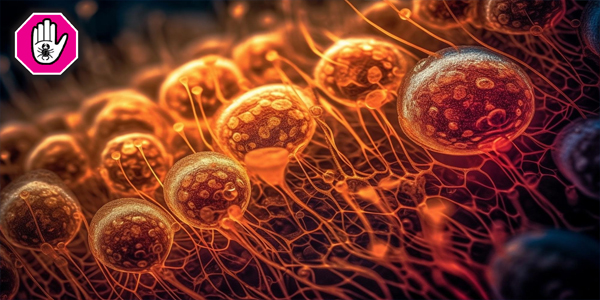Hormone therapy is primarily used to treat cancers that are sensitive to hormones, meaning their growth is driven by hormones. These cancers include:
1. Breast Cancer
Breast cancer is one of the most common hormone-sensitive cancers, with about 70% of cases being estrogen receptor-positive (ER-positive). In these cancers, estrogen promotes tumor growth, making hormone therapy a crucial part of treatment. Hormone therapy for breast cancer includes:
- Tamoxifen: A selective estrogen receptor modulator (SERM) that blocks estrogen from binding to its receptor on breast cancer cells. Tamoxifen is used in both premenopausal and postmenopausal women.
- Aromatase Inhibitors (AIs): These drugs (e.g., Anastrozole, Letrozole) are used in postmenopausal women to block the production of estrogen. They are often prescribed for women whose breast cancer has already spread or after surgery to reduce the risk of recurrence.
- Ovarian Suppression: For premenopausal women, therapies like gonadotropin-releasing hormone (GnRH) agonists can be used to stop the ovaries from producing estrogen.
2. Prostate Cancer
Prostate cancer is often driven by androgens (male hormones), including testosterone. Hormone therapy for prostate cancer, also known as androgen deprivation therapy (ADT), works by reducing androgen levels or blocking their effect on prostate cancer cells. Hormone therapy for prostate cancer includes:
- LHRH Agonists and Antagonists: These drugs stop the production of testosterone by affecting signals from the brain to the testes. Examples include Leuprolide and Degarelix.
- Anti-Androgens: These drugs, such as Flutamide and Bicalutamide, block testosterone from binding to androgen receptors on prostate cancer cells, preventing the hormone from stimulating cancer growth.
- Orchiectomy: Surgical removal of the testes to permanently lower testosterone levels, though this option is less common today with the availability of effective drugs.
3. Endometrial Cancer
Estrogen plays a role in the development of some endometrial cancers (cancers of the lining of the uterus). In cases where hormone-sensitive endometrial cancer is diagnosed, hormone therapy may include progestins to slow tumor growth by opposing the effects of estrogen.
4. Ovarian Cancer
Though less common, some types of ovarian cancer can be hormone-sensitive, particularly in the case of low-grade ovarian cancers. Hormone therapies, such as tamoxifen or aromatase inhibitors, may be used in specific cases, especially when surgery and chemotherapy are not suitable.
Types of Hormone Therapy
There are several types of hormone therapy depending on the type of cancer and the patient’s hormone sensitivity. Here’s a table summarizing the key therapies:
| Type of Hormone Therapy | How It Works | Used For | Examples |
|---|---|---|---|
| Selective Estrogen Receptor Modulators (SERMs) | Block estrogen from binding to its receptor in breast cancer cells. | Breast cancer (ER-positive) | Tamoxifen |
| Aromatase Inhibitors (AIs) | Block the enzyme aromatase, reducing estrogen production. | Postmenopausal breast cancer | Anastrozole, Letrozole |
| LHRH Agonists/Antagonists | Lower testosterone by affecting the signaling pathway between the brain and the testes. | Prostate cancer | Leuprolide, Degarelix |
| Anti-Androgens | Block androgens like testosterone from binding to cancer cells. | Prostate cancer | Flutamide, Bicalutamide |
| Progestins | Synthetic versions of progesterone to counteract estrogen. | Endometrial and breast cancer | Medroxyprogesterone (Provera) |
| Ovarian Suppression | Stops the ovaries from producing estrogen in premenopausal women. | Breast cancer | GnRH Agonists (e.g., Goserelin) |
Benefits of Hormone Therapy
- Effective for Certain Cancers:
- Hormone therapy is highly effective for hormone-sensitive cancers, such as breast and prostate cancer. It can slow or stop cancer growth and, in some cases, shrink tumors.
- Preventing Recurrence:
- Hormone therapy is often used as an adjuvant treatment (after surgery or radiation) to reduce the risk of cancer coming back.
- Less Aggressive than Chemotherapy:
- Hormone therapy is generally less toxic than chemotherapy, making it an option for patients who may not tolerate more aggressive treatments.
- Can Be Used Long-Term:
- Hormone therapies can often be taken for extended periods, sometimes years, to keep cancer under control.
Side Effects of Hormone Therapy
While hormone therapy is generally well-tolerated, it can have side effects due to the reduction of hormone levels. Common side effects include:
- For women: Hot flashes, vaginal dryness, mood swings, bone thinning, and an increased risk of blood clots (especially with tamoxifen).
- For men: Reduced libido, erectile dysfunction, hot flashes, fatigue, loss of muscle mass, and bone thinning.
Conclusion
Hormone therapy is a crucial treatment option for hormone-sensitive cancers, particularly breast and prostate cancers. By reducing or blocking the hormones that fuel cancer growth, hormone therapy helps to control the disease and reduce the risk of recurrence. While it can have side effects, its effectiveness and long-term benefits make it a key part of the cancer treatment arsenal.
For patients with hormone-sensitive cancers, hormone therapy offers a targeted, often less aggressive approach to slowing


